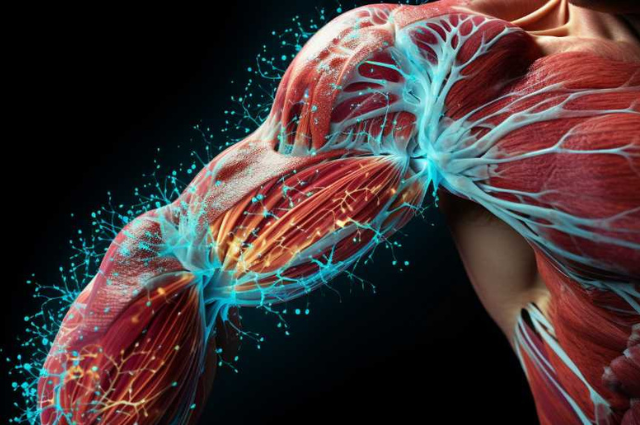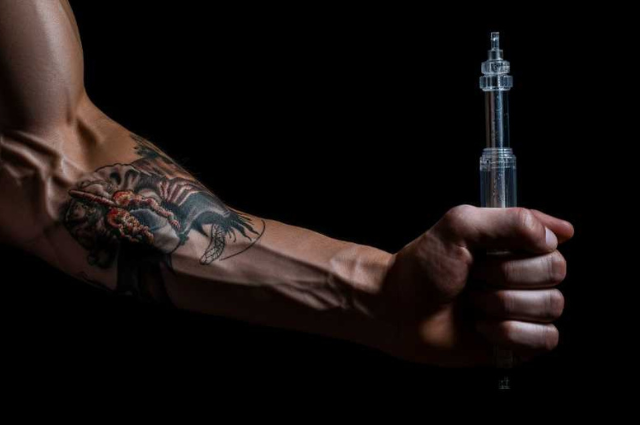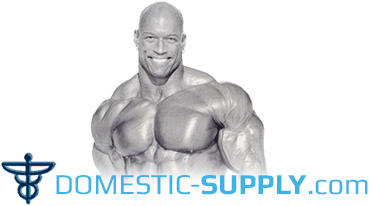10 Tips: Addressing Steroid Abuse Health Impacts

Steroid abuse is a significant public health issue with far-reaching consequences for both physical and mental well-being. It is not a problem to be taken lightly, nor one to be addressed in isolation. This guide offers a comprehensive approach to understanding and handling steroid abuse, providing ten practical tips to address the health impacts. These range from effective communication strategies to intervention methods, treatment options, and long-term health maintenance strategies. The focus is on providing holistic solutions that not only tackle the immediate impact of steroid abuse but also help build a supportive environment that encourages recovery and promotes sustained health.
Key Takeaways
- Steroid abuse can have severe physical consequences such as acne, abnormal breast tissue development, cardiovascular issues, liver damage, and reproductive issues.
- Steroid use can lead to various psychological impacts including mood swings, aggression, memory loss, depression, and false sense of invincibility.
- Effective communication strategies and intervention methods include using clear language, utilizing different communication channels, sharing personal experiences, fostering open dialogue, and involving medical professionals.
- Treatment options for steroid abuse include psychotherapy, medication, education, support groups, outpatient or inpatient programs, detoxification, cognitive-behavioral therapy, and open communication. Long-term health maintenance strategies involve healthy habits, routine medical check-ups, support groups, communication with healthcare providers, education, and resistance skills.
Understanding Steroid Abuse

The pervasive issue of steroid abuse necessitates a comprehensive understanding of its origins, implications, and the drastic health impacts it can impose on individuals. Steroids, otherwise known as anabolic-androgenic steroids (AAS), are synthetic derivatives of testosterone, a hormone naturally produced in the human body. These substances were originally developed in the 1930s to treat hypogonadism, a condition in which the testes do not produce sufficient testosterone for normal growth, development, and sexual functioning.
However, the performance-enhancing properties of these substances soon led to rampant misuse, especially in competitive sports and bodybuilding. The desire to gain an unfair advantage, societal pressures, and body dissatisfaction are among the key factors contributing to its widespread abuse.
The implications of steroid abuse are manifold, affecting both the physical and psychological wellbeing of individuals. On the physical front, steroid abuse can lead to severe health problems such as cardiovascular disease, liver damage, and reproductive disorders. Psychologically, it can result in mood disorders, aggression, and other mental health issues.
Furthermore, the illegal status of non-medical use of steroids often results in the consumption of counterfeit or low-quality products, exacerbating the health risks involved.
Physical Consequences of Steroids

Numerous physical consequences arise from the abuse of anabolic-androgenic steroids, significantly impacting the overall health and wellbeing of users. These substances, designed to mimic the body's natural hormones, can cause severe damage when used improperly or excessively. The physical effects of steroid abuse range from minor, reversible changes to life-threatening conditions.
One of the most common effects is a drastic alteration in physical appearance. This includes severe acne, fluid retention leading to swelling, and in men, gynecomastia - the abnormal development of breast tissue. Steroid users also often experience increased muscle mass and strength, which, while might seem desirable, can lead to disproportionate and unnatural body development.
Steroid abuse can also lead to cardiovascular issues. These can range from high blood pressure and unhealthy cholesterol levels to heart disease and stroke. The risk is particularly high due to steroids' impact on the heart's size and its ability to pump blood efficiently.
Furthermore, the abuse of steroids can cause significant damage to the liver, potentially leading to life-threatening conditions such as liver tumors and cysts. It can also cause harm to the kidneys, often leading to a condition known as 'roid rage', characterized by aggressive and violent behavior.
Lastly, steroid abuse can lead to reproductive issues. In men, this can include decreased sperm count, erectile dysfunction, and even infertility. In women, it can cause irregular menstrual cycles, deepened voice, and increased body hair.
Psychological Impacts of Steroid Use

In addition to the substantial physical consequences, steroid abuse also inflicts severe psychological impacts on users. Steroids can induce a range of emotional effects ranging from mood swings and memory loss to severe mental health conditions like depression and anxiety. The psychological alterations are largely due to the hormonal imbalances caused by the drug's interference with the body's normal production of hormones.
Steroid users often experience significant mood swings, which can manifest as unprovoked aggression, irritability, or even euphoria, commonly termed as 'roid rage'. This can lead to strained relationships, domestic violence, and other social issues. Moreover, steroids are known to induce a false sense of invincibility, leading to risky behaviors that can have dire consequences.
Memory loss is another psychological effect linked to steroid abuse. Users may struggle with both short-term and long-term memory, affecting their cognitive abilities and daily functioning. This, combined with the mood swings, can cause significant distress and interfere with their quality of life.
Furthermore, long-term steroid use can lead to severe mental health issues. Depression and anxiety are common among users, often persisting even after discontinuing the drug. The severity of these disorders can be so profound that they lead to suicidal thoughts or actions.
Effective Communication Strategies

While it is imperative to acknowledge the devastating health impacts of steroid abuse, it is equally important to implement effective communication strategies to increase awareness and promote prevention. These strategies must be designed to reach all levels of society—from individuals and families to communities and institutions—in order to be truly impactful.
Firstly, we must use clear, understandable language in all communication efforts. Medical jargon and complex terminology can often alienate or confuse the very people we are trying to reach. Instead, use simple, direct language that everyone can understand. This will increase the likelihood that the message will be received and understood.
Secondly, we need to utilize a variety of communication channels. Traditional methods—such as print media, television, and radio—can be paired with digital platforms like social media, blogs, and online forums to reach a wider audience. It's important, however, to tailor the message to the medium. What works for a newspaper article might not be as effective on Twitter or Instagram.
Thirdly, storytelling can be an effective tool in communication. Sharing personal experiences and real-life stories can make the impact of steroid abuse more tangible and relatable. It can also inspire others to share their own stories, creating a powerful ripple effect.
Lastly, it's essential to foster open dialogue. This means not only disseminating information but also listening to what others have to say. By creating a safe space for discussion and encouraging feedback, we can make people feel heard and valued, which in turn can motivate them to take action against steroid abuse.
Intervention Methods for Steroid Abuse
Building upon effective communication strategies, the fourth crucial step in addressing the health impacts of steroid abuse involves implementing proven intervention methods. These strategies include a comprehensive approach that involves various stakeholders such as health professionals, educators, and family members.
Key intervention methods comprise:

- Psychotherapy: Cognitive-behavioral therapy is an effective technique that helps to change the negative thought patterns and behaviors associated with steroid abuse. It allows individuals to develop healthier coping mechanisms and encourages them to maintain abstinence.
- Medication: Certain medications can be used to counteract the withdrawal symptoms associated with steroid cessation. This makes the transition easier and enhances the chances of successful recovery.
- Education: Implementing comprehensive education programs that highlight the adverse effects of steroid abuse is essential. It can deter individuals, especially adolescents, from starting to use steroids.
- Support Groups: Providing a safe space for individuals to share their experiences with steroid abuse can provide emotional support and reduce feelings of isolation.
These intervention methods should be used in conjunction with each other for maximum effectiveness. Each method addresses a different aspect of the problem, and when used together, they provide a comprehensive approach to treating steroid abuse.
Psychotherapy addresses the underlying psychological issues, while medication helps manage withdrawal symptoms. Education is a preventative measure, and support groups provide ongoing assistance during recovery. A combination of these methods increases the likelihood of successful intervention and long-term recovery.
Treatment Options for Recovery

After successful intervention, it's crucial for individuals recovering from steroid abuse to explore various treatment options that can aid in their journey towards a healthy and drug-free life. The type and intensity of treatment often depend on the severity of the steroid abuse and any co-occurring mental health disorders.
There are several tracks for recovery, including outpatient and inpatient treatment programs. Outpatient programs are typically best suited for individuals with less severe steroid abuse issues and a strong support system at home. They provide a flexible approach, allowing patients to continue with daily responsibilities while attending scheduled treatment sessions.
Inpatient programs, however, are designed for individuals with serious steroid addiction or those with multiple addictions or mental health disorders. These programs provide 24/7 care and a supportive, distraction-free environment where patients can focus solely on recovery.
Detoxification is often the first step in both outpatient and inpatient treatment, helping individuals to safely withdraw from steroids under medical supervision. Therapy, including cognitive-behavioral therapy (CBT), is another key component of treatment. CBT focuses on identifying and changing unhealthy thought patterns that lead to steroid abuse.
Medication may be used to manage withdrawal symptoms and treat co-occurring mental health conditions. A comprehensive recovery plan often includes healthy lifestyle guidance, such as nutritional counseling and exercise programs, to help individuals rebuild strength and regain physical health.
Building a Supportive Environment

Creating a supportive environment is an integral part of the recovery process for individuals overcoming steroid abuse. It fosters affirming conditions that help the individual navigate the challenging path towards sobriety and health. A supportive environment, which may include family, friends, and professional help, can help mitigate the physical and psychological impacts of steroid abuse.
The following factors are essential in building a nurturing surrounding:
- Open Communication: Encouraging honest dialogue about the individual's struggles and progress can foster trust and mutual understanding. It allows the person overcoming addiction to express feelings and concerns without fear of judgment.
- Education: Understanding the dangers and impacts of steroid abuse can foster empathy and patience among the support network. It's crucial for every member to grasp the severity of the situation and the possible health consequences.
- Professional Help: Involving healthcare professionals can provide essential medical and psychological support. Therapists, counselors, and physicians play a significant role in recovery, offering necessary advice and treatment.
- Positive Reinforcement: Celebrating small victories and progress can boost morale and motivation. Encouraging healthy habits and rewarding the individual's efforts can reinforce their commitment to recovery.
Implementing these strategies can create an environment conducive to recovery. It's important to remember that overcoming steroid abuse is a journey that requires patience, understanding, and unconditional support. Each person's recovery is unique, and the support environment should adapt to their individual needs and circumstances. With a strong, supportive network, individuals can effectively address the health impacts of steroid abuse and journey towards a healthier future.
Long-term Health Maintenance Strategies

The transition from steroid abuse recovery to long-term health maintenance necessitates an array of strategies that ensure continued sobriety and overall well-being. Primarily, the development and sustenance of healthy habits, coupled with routine medical check-ups, are vital. Regular exercise, balanced nutrition, and adequate sleep play crucial roles in reinforcing physical health, while also aiding in the management of stress, a potential trigger for relapse.
Moreover, it is essential to consistently follow the treatment plan devised by healthcare professionals. This plan often includes regular counselling or therapy sessions, medication (if prescribed), and frequent health assessments to monitor recovery progress. Adherence to this plan aids in preventing relapse and addressing any emerging health concerns promptly.
In addition, participation in support groups can provide an individual with a sense of community, thereby alleviating feelings of isolation often associated with recovery. Sharing experiences and coping strategies with others who have undergone similar experiences can offer invaluable insights and encouragement.
Furthermore, it is crucial to maintain an open line of communication with healthcare providers. Regularly updating them about any physical or psychological changes can help in adjusting treatment plans accordingly, ensuring optimal health maintenance.
Lastly, education about the harmful impacts of steroid abuse, coupled with skills to resist temptation, forms another cornerstone of long-term health maintenance. This knowledge empowers individuals to make informed decisions about their health and resist potential triggers.
Frequently Asked Questions
What Are the Legal Implications of Steroid Abuse?
Legal implications of steroid abuse can be severe, as most countries classify anabolic steroids as controlled substances. Unlawful possession, distribution or use can result in criminal charges, incarceration, fines, and a permanent criminal record. Additionally, those in professions such as sports or healthcare could face disciplinary actions, including suspension or termination. Furthermore, in the event of harm to others, steroid abusers can also be held legally liable.
How Prevalent Is Steroid Abuse in Professional Sports?
The prevalence of steroid abuse in professional sports is unfortunately significant. While exact numbers can be difficult to ascertain due to secretive usage, studies suggest a substantial minority of athletes use performance-enhancing drugs. This issue spans numerous sports, from bodybuilding to football. Efforts are ongoing to combat this problem, including rigorous testing protocols and severe penalties for violations. Despite these measures, the allure of competitive edge often leads athletes to risk their health and career.
How Has the Rise of Social Media Influenced Steroid Abuse?
The advent of social media has significantly influenced steroid abuse by creating an environment where physical perfection is idolized, leading to increased pressure to use performance-enhancing drugs. Social media platforms also provide easy access to information and resources on steroids, potentially encouraging misuse. Furthermore, the anonymity of online interactions may reduce the perceived risks, fostering a culture of acceptance around steroid abuse.
What Are the Most Commonly Abused Steroids and Why?
The most commonly abused steroids are Anabolic-androgenic steroids (AAS), which include drugs like testosterone, nandrolone, and stanozolol. These are often misused by athletes and bodybuilders due to their effects in increasing muscle mass and improving physical performance. However, the misuse of these substances can lead to serious health risks including liver damage, cardiovascular diseases, and psychological disorders.
Can Certain Diets or Nutritional Supplements Mimic the Effects of Steroids?
Certain diets or nutritional supplements cannot exactly mimic the effects of steroids. Steroids are synthetic substances that replicate human hormones, notably testosterone, and promote muscle growth and performance enhancement. While a healthy diet and proper supplementation can support muscle growth and recovery, they do not have the hormone-altering effects of steroids. Thus, they cannot produce the same rapid and significant muscle gains or performance improvements associated with steroid use.
Conclusion
In conclusion, steroid abuse poses serious physical and psychological health risks. Effective communication and intervention methods can aid in addressing this issue. Treatment options and a supportive environment are crucial for recovery. Adopting long-term health maintenance strategies can help mitigate the adverse impacts of steroid abuse. It's imperative to understand the gravity of steroid abuse and proactively seek solutions to curb this growing problem.
